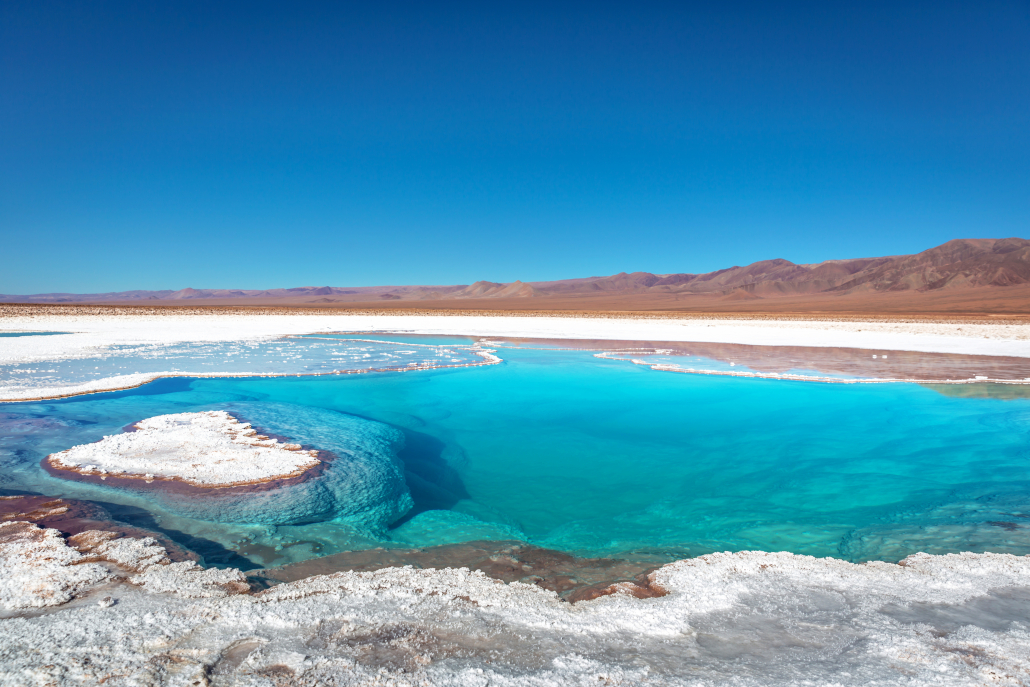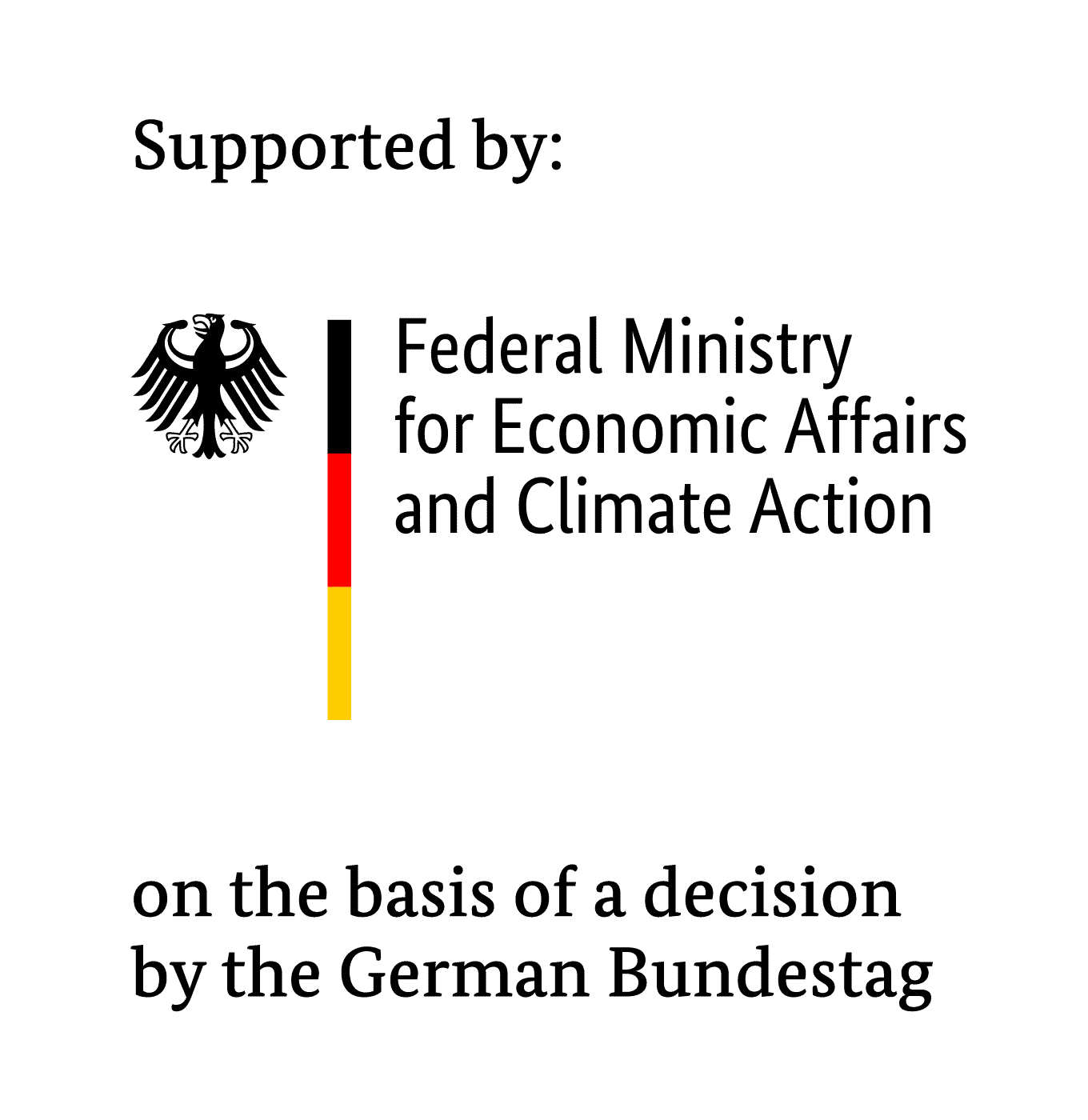The Salar de Atacama is the deposit with the best conditions for lithium mining in the world. The concentration in this place is 1,500 parts per million. Further advantages are the geographical location at an altitude of only 2,300 meters, access to roads and electricity, and proximity to international ports. These mining conditions are unique in the world.
There are 45 salt lakes and 18 lagoons with lithium deposits in Chile, of which 23 have been explored. In other words, the potential for lithium production in Chile is far from exhausted. At present, only two private companies are producing lithium in Chile: the local company SQM and Albemarle from the USA. Both operate in the Salar de Atacama. In 2022, SQM held a 20 percent market share of lithium production; Albemarle contributed 16 percent. Together both companies paid nearly 5.7 billion US$ in taxes to the Chilean government.
The reason that no other companies are producing lithium in Chile is primarily due to the decree 2.886 of 1979. It classifies lithium, uranium and thorium as minerals of national importance due to their potential use in the nuclear sector. Therefore, they are not suitable for concessions. Mining them requires a special state permit. Other minerals, on the other hand, are subject to standard regulation and are dependent on the relevant financial backers and the approval of mandatory environmental impact studies.
In view of this, only the state or state-owned companies can mine lithium in Chile. Private companies require a specific permit for this purpose. The Ministry of Mining is responsible for issuing these “Contratos Especiales de Operación de Litio (CEOL)” based on a presidential decree. Moreover, besides the approval of the Chilean Nuclear Energy Commission (Comisión Chilena de Energía Nuclear CChEN) additional administrative concessions are required.
In addition to the Ministry of Mining, which grants the CEOL for extraction, the next organizations are important players for companies that want to mine lithium in Chile:
- The Chilean economic development agency Corfo (Corporación de Fomento de la Producción) is the sole concession holder of lithium mining sites
- The Chilean copper commission Cochilco (Comisión Chileana del Cobre) evaluates the issuance of the special lithium contracts CEOL
- The Chilean Nuclaer Energy Commission authorizes the quota for lithium commercialization
- The geographic service Sernageomin
- The water authority DGA
The fact that lithium is extracted at all in the Salar de Atacama goes back to the concession that Corfo had already acquired for the Salar de Atacama before 1979, before the law came into force. Within the framework of this concession, Corfo was able to conclude corresponding lease agreements with the two current lithium producers SQM and Albemarle. These agreements also contain pumping quotas and mining quantities. SQM’s contract runs until 2030; Albemarle’s until 2043. If both contracts expire and no new agreements are reached with Corfo, the companies would have to leave the Salar de Atacama.
Major Producers (Percent of global production, 2022)
| Australia | 46,9 |
| Chile | 30,0 |
| China | 14,6 |
| Argentina | 4,8 |
| Brazil | 1,7 |
Source: US Geological Survey 2023, S. 108
Countries with the largest lithium reserves (Percentage of global reserves, 2022)
| Chile | 35,8 |
| Australia | 23,8 |
| Argentina | 10,4 |
| China | 7,7 |
| USA | 3,8 |
Source: US Geological Survey 2023, S. 108
Detailed explanations in German on the current production and commodity risk assessment are available in the DERA report: https://www.deutsche-rohstoffagentur.de/DE/Gemeinsames/Produkte/Downloads/DERA_Rohstoffinformationen/rohstoffinformationen-54.pdf?__blob=publicationFile&v=2
Summary of the national Chilean Lithium strategy 2023
On April 20, 2023, in a speech to the Chilean people, the President of the Republic Gabriel Boric presented the new national lithium strategy. The strategy was already announced for 2022, postponed several times and therefore awaited with great interest. The basic framework, i.e. the creation of a national lithium company and the possibility of public-private partnerships for specific projects, had already became public in the weeks before through various channels. It also included the stronger role of the two state-owned companies Codelco (Corporación Nacional del Cobre de Chile), the world’s largest copper producer, and the state-owned mining company Enami (Empresa Nacional de Minería).
One Strategy – six columns
- Involvement of the state in all stages and cycles of the industry through the creation of a national lithium company and a Corfo-committee for lithium and salt lakes
- National Lithium Company: To ensure the development of exploration, exploitation and value-added projects through the cooperation with private companies. The enterprise should also promote technological development across all sectors of the value chain.
- Lithium and Salt Lakes Committee headed by the Ministry of Energy: the committee aims to be responsible for promoting productive change and the development of scientific-technological and industrial development strategies. The objective is to develop activities in both upstream and downstream of the lithium cycle.
- Capacity/know-how creation through a public institute for lithium and new technologies.
- Promotion of new technologies for direct lithium extraction with brine re-injection instead of its evaporation. Goals are a reduction in impact on salt lake ecosystems and better water management.
- Study the other salt lakes to record lithium concentrations and investigate the conditions for possible responsible and sustainable lithium extraction.
- Public-private partnerships for the exploration, development and growth of the industry, with the state retaining control over decisions that affect production.
- Political and social sustainability through the involvement of territories and communities: Dialogue with and participation of different stakeholders, such as representatives of local communities and indigenous groups, regional government, academia, business, civil society, and central government and other public institutions.
- Environmental sustainability through the creation of an administrative association of protected salt lakes and ensuring the use of environmentally friendly technologies.
- Modernizing the industry’s institutional framework in line with the country’s challenges and goals: Support the development and growth of the lithium industry, mitigate environmental impacts on salt lakes, and ensure stability for existing and new organizations.
Overview of specific measures and timings:
- Law to create a national lithium company (date pending)
- Creation of a public institute for lithium and new technologies (second half of 2023)
- Strategy to start state-led productive activities in the Salar de Atacama; strategy to be implemented before the end of 2023
- Mechanism for exploration and cadaster creation in salt lakes other than the Salar de Atacama
- Start of national participatory process with municipalities and communities (date still to be determined)
- Creation of a CORFO committee for the productive development of lithium and the salars (third quarter of 2023)
- Start the process of inclusion in the Extractive Industries Transparency Initiative (EITI) (first half of 2023)
Public-private cooperation
- Public-private cooperation is the centerpiece of the strategy. It implies both a stronger role for the state and the involvement of private parties.
- The private sector is expected to provide know-how, capital and the development of new technologies to boost production and increase value creation.
- In addition, the objective is to create more competition – in no small part by diversifying the players. In concrete terms, this means increasing the number of players in the Salar de Atacama from the current two and creating a cadaster of the other salars in order to carry out public-private exploration there.
- The participation of private parties in lithium projects is declared “strategic” and will take place in a minority participation; this does not necessarily apply to other lithium projects (not declared strategic). To date, there is no information on which projects are considered strategic.
On Codelco`s role in the Salar de Atacama
- Currently, Corfo manages the lithium reserves. As part of the national lithium strategy, the President instructed Corfo to assign Codelco to work out the best ways to involve the Chilean state in lithium production in the Salar de Atacama, effective immediately.
- Codelco will be the state representative to Albemarle and SQM to obtain state participation even before the current contracts expire.
- If a public-private company is created to extract the lithium in the Salar de Atacama, it will be controlled by the state through Codelco.
- The Chilean state will fully comply with the terms of the existing contracts until the end of the contract; this means that any expected state participation in the Salar de Atacama will be the result of an agreement with those who currently hold the rights to extract the lithium.
English version of German document generated 05/02/2023
Iris Wunderlich Stefanie Schmitt
iwunderlich@ahkchile.cl stefanie.schmitt@gtai.de
AHK Chile GTAI



 istock
istock istock
istock